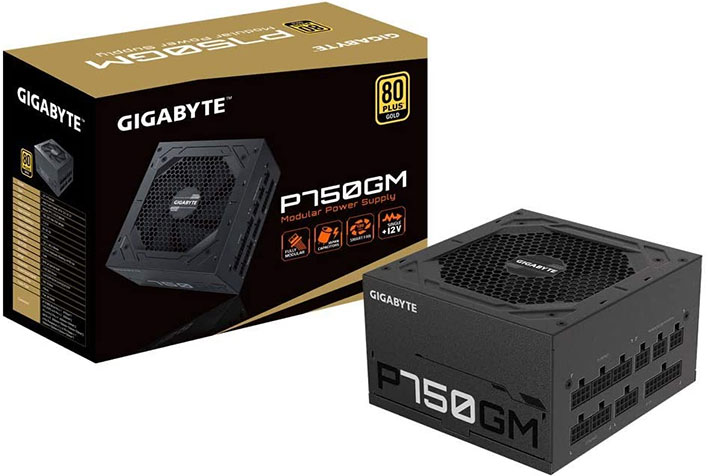Gigabyte Offers To Exchange Exploding PSU Models But The RMA Process Is Catching Heat

Gigabyte is coming under scrutiny for what has apparently morphed into a confusing RMA policy, as part of an unsolicited offer to replace certain PSU models that failed under stress testing by multiple reviewers. There is quite a bit to unpack there, right? So let's back up a moment and start from the beginning (which fortunately is not that far back).
At the heart of the controversy are two specific PSU models: GP-P850GM (850W) and GP-P750GM (750W). These are both fully modular power supply units with 80 Plus Gold certification, to deliver 90 percent efficiency at 50 percent load. Additionally, Gigabyte advertises the use of "high quality Japanese capacitors" as part of its reliability claim.
Unfortunately, these two models seem to have a tendency to explode in certain situations. Multiple reviewers reported this, including Steve Burke at Gamer's Nexus, who said half of the "10 or so" models purchased at Newegg failed "in an explosive capacity" during testing. One of them catastrophically failed at just a 60 percent load.
One of the harrowing moments was caught on video, when a PSU being tested sparked and sizzled, as one of the MOSFETs exploded. And in another case, a PSU failure took with it to the graveyard a connected GeForce RTX 3080 graphics card.
Gigabyte Offers To Replace Certain PSU Models That Are Prone To Fail In Heavy Tests
So what's going on? That is still being worked out. If you ask Gigabyte, however, it will tell you that the kind of extended testing of the over power protection (OPP) feature that reviewers have been doing "would not be typical of any real world usage." Nevertheless, it is adjusting the OPP trigger points on the two aforementioned models, to prevent this sort of thing from happening.
Here are the old and new values...
- GP-P850GM: Adjusted OPP trigger point range from 120% ~ 150% to 110% ~ 120% Before: 1020W ~ 1300W After: 950W ~ 1050W
- GP-P750GM: Adjusted OPP trigger point range from 120% ~ 150% to 110% ~ 120% Before: 900W ~ 1125W After: 825W ~ 925W
What this means is that the OPP mechanism will kick in at lower wattage levels, to prevent peaks that exceed the intended range from doing any damage. At the same time, Gigabyte is downplaying the issue, essentially saying that recent failures are the result of tests that do not reflect real-world usage.
It has decided to relent anyway, and has offered to replace both models, within a certain serial number range. They include...
- GP-P850GM: SN20343G031011 to SN20513G022635
- GP-P750GM: SN20243G001301 to SN20453G025430
"Despite the fact that both before & after OPP adjustment versions are reliable for real world usage, we still offer owners of the GP-P850GM or GP-P750GM products included in the serial number range listed," Gigabyte stated in no uncertain terms.
Customer Claims Gigabyte Is Refusing To Exchanged An Covered PSU Model
This brings us back to what we stated initially, which is that Gigabyte is catching heat for a confusing RMA policy. It seems straightforward enough, but according to Reddit user Tinefol, they were denied a replacement by Gigabyte, even though they own the 750W version (GP-P750GM) with a serial number that falls within the stated range.
It's not clear if the support representative is confused or misinformed, or if there are certain batches within the serial number ranges that still fall outside the scope of Gigabyte's replacement offer. We also don't know how many people have run into this. The thread is getting a lot of traction, but it is mostly from others commenting from the sidelines.
That is not the case in the thread's entirety, though. Another user said they contacted Newegg and told the retailer Gigabyte was giving them the runaround. "They [Newegg] were willing to give me a full refund," the user wrote.
It's possible that was a recent purchase, though. Users might have trouble getting retailers to step in, for purchases made outside the return window. Still, it does not hurt to ask, if you own an affected model. First, though, we'd suggested contacting Gigabyte, because this might be an isolated (or partially isolated) situation.


